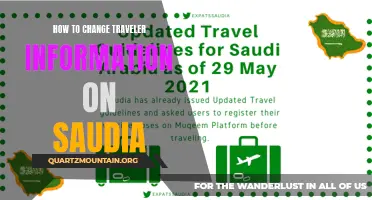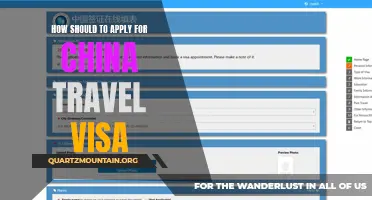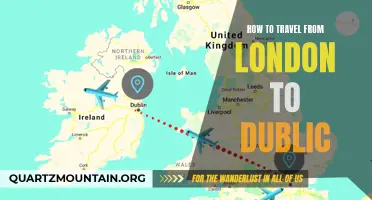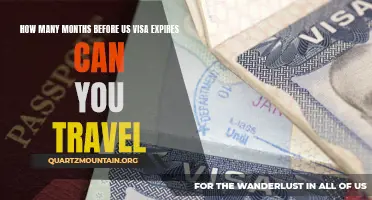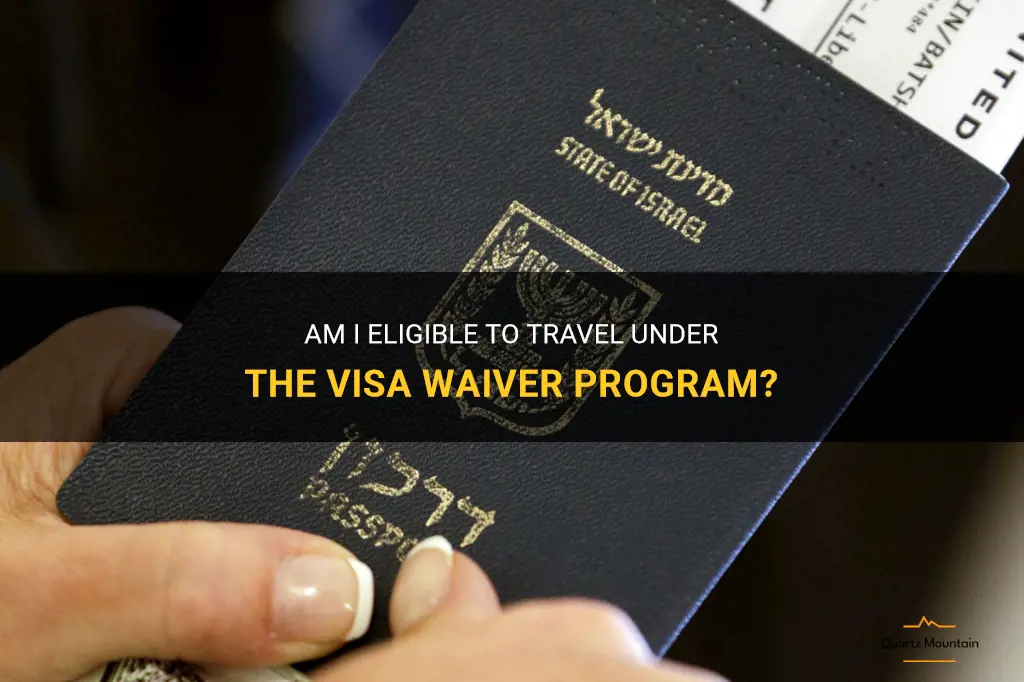
Are you dreaming of an international getaway, but unsure of your eligibility under the Visa Waiver Program? Look no further! This article will provide a comprehensive guide to help determine if you meet the requirements for hassle-free travel. Whether you're planning a business trip or a leisurely adventure, it's time to find out if you qualify to travel under the Visa Waiver Program. So pack your bags and let's discover if your travel dreams can become a reality!
| Characteristics | Values |
|---|---|
| Citizenship | VWP member country |
| Passport | Valid for at least 6 months |
| Purpose of travel | Business, tourism, medical treatment |
| Duration of stay | 90 days or less |
| Previous violations | No previous visa violations or criminal records |
| Travel history | No previous immigration violations or overstays |
| Return ticket | Proof of return or onward travel within 90 days |
| ESTA authorization | Approved authorization through the Electronic System for Travel Authorization (ESTA) |
| Visa application | No previous denial of a U.S. visa |
| Special cases | Not a dual national of Iran, Iraq, Sudan, or Syria |
| Waiver program requirements | Comply with all the requirements of the Visa Waiver Program |
| Entry procedures | Present valid passport at U.S. port of entry |
| Immigration inspection | Must be inspected and admitted by a CBP officer |
| Employment | Not allowed to work or study in the U.S. |
What You'll Learn
- What are the eligibility requirements for traveling under the Visa Waiver Program?
- How long can I stay in the United States under the Visa Waiver Program?
- Can I work or study while traveling under the Visa Waiver Program?
- Are there any restrictions on the countries that can take part in the Visa Waiver Program?
- What happens if I overstay my allowed time under the Visa Waiver Program?

What are the eligibility requirements for traveling under the Visa Waiver Program?

The Visa Waiver Program (VWP) is a program established by the United States government that allows citizens of certain countries to travel to the United States for tourism or business purposes without obtaining a traditional visa. Instead, eligible travelers can apply for authorization through the Electronic System for Travel Authorization (ESTA). However, not all travelers are eligible for the VWP. There are certain requirements that must be met in order to travel under this program.
- Citizenship: To be eligible for the Visa Waiver Program, a traveler must be a citizen of one of the 39 countries that participate in the program. These countries include Australia, Germany, Japan, the United Kingdom, and many more. It is important to check the current list of participating countries before planning your trip.
- Purpose of Visit: The purpose of the visit under the VWP must be for tourism or business purposes only. This includes activities such as sightseeing, visiting friends or family, attending conferences or meetings, or engaging in negotiations or consultations. If the purpose of the visit is for other reasons, such as employment or study, a traditional visa will be required.
- Duration of Stay: Travelers under the VWP are allowed to stay in the United States for a maximum of 90 days. This includes the time spent in the country for tourism, business, or any other authorized activity. It is important to note that overstaying the allowed period can have serious consequences, including future visa denials and potential difficulties in entering the United States.
- Valid Passport: The traveler must have a valid passport issued by their participating country. The passport must be an electronic passport with a chip that contains biometric information. This allows for a more secure and efficient entry process when arriving in the United States. The passport should also be valid for at least six months beyond the planned date of departure from the United States.
- ESTA Authorization: In order to travel under the VWP, travelers must obtain authorization through the ESTA. This can be done online by completing the application, providing personal information, and paying the required fee. The ESTA application should be submitted at least 72 hours before the scheduled departure to ensure sufficient processing time. The authorization is valid for up to two years or until the expiration of the traveler's passport, whichever is sooner.
- Admissibility: Even if a traveler meets all the eligibility requirements for the VWP, they may still be deemed inadmissible for entry into the United States. Factors that can affect admissibility include past criminal convictions, previous visa denials, and health-related issues. It is important to disclose any relevant information truthfully and accurately during the ESTA application process to avoid potential problems when entering the United States.
In conclusion, the Visa Waiver Program provides eligible travelers with a convenient and streamlined process for visiting the United States for tourism or business purposes. However, it is essential to ensure that all the eligibility requirements are met before planning a trip. By obtaining the necessary ESTA authorization and following the rules and regulations of the program, travelers can enjoy their visit to the United States without the need for a traditional visa.
Tips for Traveling to the Bahamas on a B1/B2 Visa
You may want to see also

How long can I stay in the United States under the Visa Waiver Program?
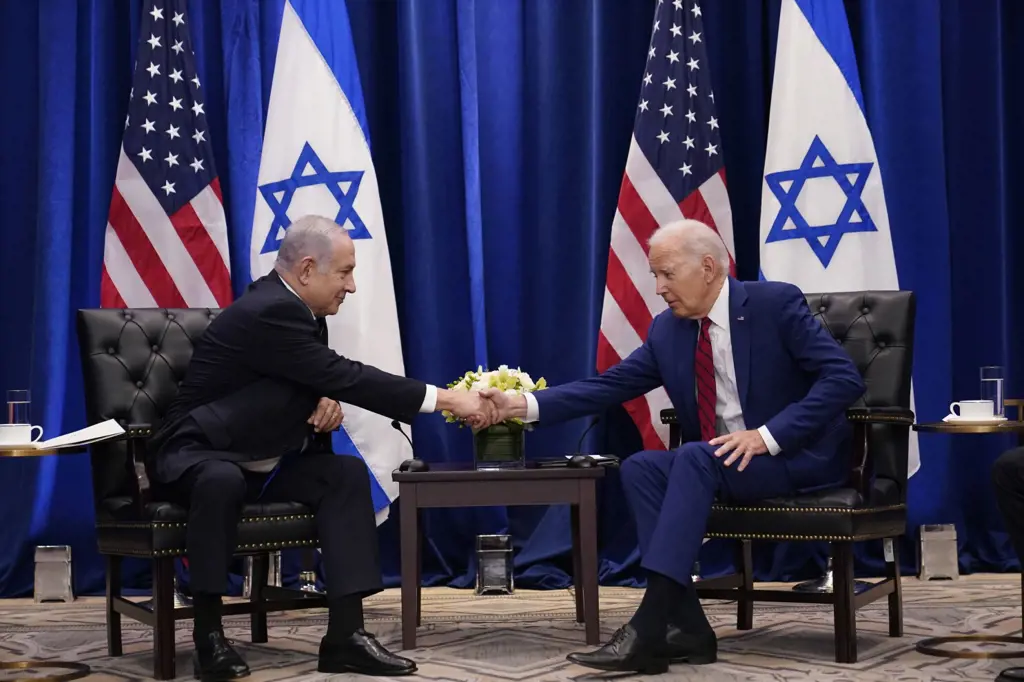
The Visa Waiver Program (VWP) allows citizens of participating countries to travel to the United States for tourism or business purposes without obtaining a visa. Under this program, visitors are permitted to stay in the United States for a maximum of 90 days. It is important to note that the VWP does not allow for extensions or change of status. Once the 90-day period is up, visitors must depart the United States.
The duration of stay is determined by the date stamped on the traveler's I-94 arrival/departure record. This record is issued electronically to VWP travelers upon their arrival to the United States. It is crucial for visitors to keep track of this record and ensure they depart the country before the expiration date, as overstaying can result in serious consequences, such as being barred from future entry into the United States.
If, for some reason, a traveler needs to stay in the United States for more than 90 days, they should not rely on the VWP. Instead, they should apply for a visitor visa through the U.S. Embassy or Consulate in their home country. The visitor visa allows for longer stays and provides more flexibility in terms of travel purposes and activities.
It is also worth mentioning that the 90-day limit applies to each visit to the United States. This means that if a traveler enters the country under the VWP, stays for 90 days, and then departs, they must wait for another 90 days before returning to the United States under the VWP. This "90-day clock" resets after each departure, regardless of the length of time spent outside the country.
Let's take an example to illustrate how the 90-day limit works. Suppose a citizen of a participating country enters the United States on January 1st. Their I-94 record will indicate a departure date of March 31st, 90 days from their arrival. If they leave the United States on or before March 31st, they have complied with the VWP requirements. However, if they stay beyond March 31st, even by just one day, they would be overstaying their allowed period and could face penalties and future entry restrictions.
In summary, under the Visa Waiver Program, travelers are permitted to stay in the United States for a maximum of 90 days. It is crucial for visitors to adhere to this limit and depart the country before the expiration date indicated on their I-94 record. If a longer stay is necessary, travelers should explore other visa options such as the visitor visa. Remember, overstaying can have severe consequences, so it is important to plan your trip accordingly and comply with the immigration regulations.
Understanding the Basics of a Travel Visa
You may want to see also

Can I work or study while traveling under the Visa Waiver Program?
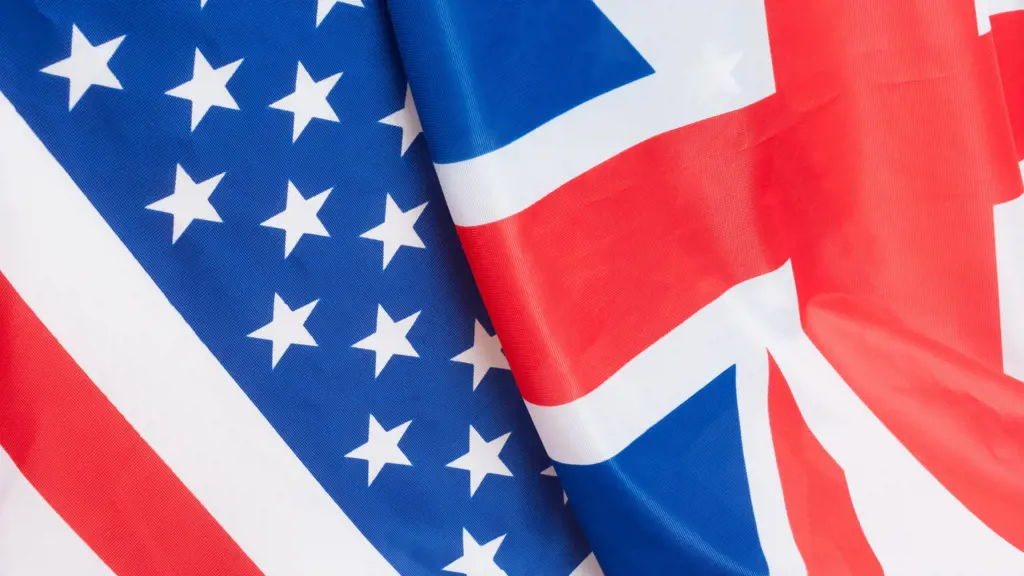
The Visa Waiver Program (VWP) allows citizens of certain countries to travel to the United States for tourism or business purposes without obtaining a visa. However, it is important to note that under the VWP, individuals are not permitted to work or study in the United States. Here's why:
Purpose of the Visa Waiver Program:
The primary purpose of the Visa Waiver Program is to promote tourism and facilitate short-term business visits between the United States and participating countries. It is not designed to provide individuals with an opportunity to work or study in the US. The VWP allows eligible individuals to stay in the US for a maximum of 90 days for tourism or business-related activities.
Immigration Laws and Regulations:
The US immigration laws and regulations strictly prohibit individuals on the VWP from engaging in any form of employment or academic activities while in the country. This includes both paid and unpaid work, internships, volunteer programs, attending classes, and pursuing educational degrees. Violating these regulations can lead to serious consequences, including deportation, future visa ineligibility, and potential bans on future visits to the US.
Work or Study Visas:
If you wish to work or study in the United States, it is necessary to obtain the appropriate visa before starting such activities. Depending on the nature of your work or study, you may need to apply for an employment-based visa, such as H-1B or L-1, or a student visa, such as F-1 or J-1. These visas require specific documentation, approvals, and may have certain restrictions or limitations on duration.
Consequences of Violating the VWP:
Engaging in unauthorized work or study activities while on the VWP can have severe ramifications. If you are caught working or studying without the appropriate visa, you may be subject to deportation. Moreover, it can negatively impact your eligibility for future visas, including tourist visas or even employment-based visas. Immigration authorities take violations of the VWP regulations seriously to protect the interests of US workers and educational institutions.
Alternatives to the VWP:
If you are planning to work or study in the United States, it is recommended to explore alternative visa options rather than relying on the Visa Waiver Program. Professional work visas and study visas provide the necessary legal status and protections, allowing you to engage in work or study activities without violating any regulations. Consult with an immigration attorney or contact the nearest US embassy or consulate in your home country for guidance on the appropriate visa for your specific needs.
In conclusion, individuals traveling under the Visa Waiver Program are not allowed to work or study in the United States. The VWP is primarily intended for short-term tourism or business visits. Violating these regulations can have severe consequences, including deportation and future visa ineligibility. If you plan to work or study in the United States, it is important to obtain the appropriate visa before engaging in such activities.
Understanding Eligible Travel for the Costco Visa: A Comprehensive Guide
You may want to see also

Are there any restrictions on the countries that can take part in the Visa Waiver Program?
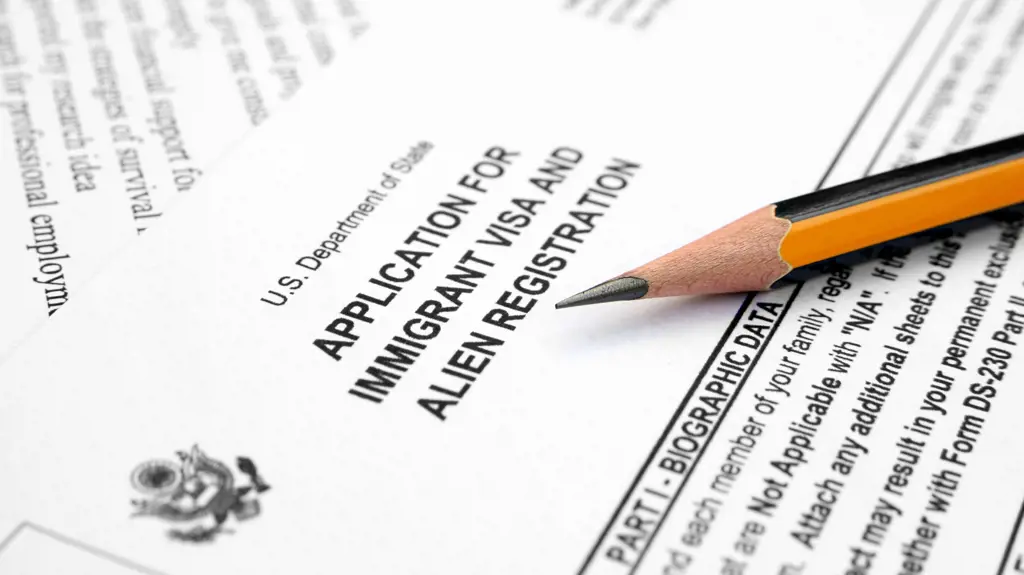
The Visa Waiver Program (VWP) is a program that allows citizens of certain countries to travel to the United States for tourism or business purposes without obtaining a visa. However, there are certain restrictions on the countries that can participate in the VWP.
The eligibility requirements for the VWP are determined based on a variety of factors, including the level of security cooperation between the United States and the participating countries. In order to qualify for the VWP, a country must meet certain criteria, such as having a low refusal rate for nonimmigrant visas, a high level of security cooperation with the United States, and a certain level of law enforcement and security capabilities. Additionally, the country must have a machine-readable passport program in place and agree to share information about their citizens with the United States.
Currently, there are 39 countries that participate in the VWP. These countries include Australia, France, Germany, Japan, South Korea, and the United Kingdom, among others. However, it is important to note that not all citizens of these countries are automatically eligible for the VWP. In order to travel to the United States under the VWP, citizens of participating countries must also meet certain individual eligibility requirements, such as having a valid machine-readable passport and obtaining authorization through the Electronic System for Travel Authorization (ESTA) prior to their trip.
While the VWP has expanded over time to include more countries, there are still certain countries that are not eligible to participate. This is often due to concerns about national security or immigration control. For example, countries that are known to be state sponsors of terrorism or that have high levels of visa fraud and abuse are generally not eligible for the VWP. Additionally, certain countries may be ineligible due to specific restrictions or agreements with the United States.
Overall, the VWP provides a convenient and streamlined process for citizens of eligible countries to travel to the United States without obtaining a visa. However, it is important for travelers to carefully review the requirements and restrictions of the VWP to ensure that they are eligible to participate. Additionally, it is always a good idea to check with the U.S. Department of State or a trusted travel agent to confirm eligibility and obtain the necessary authorization before planning a trip to the United States.
Understanding the Importance of a Travel Visa
You may want to see also

What happens if I overstay my allowed time under the Visa Waiver Program?
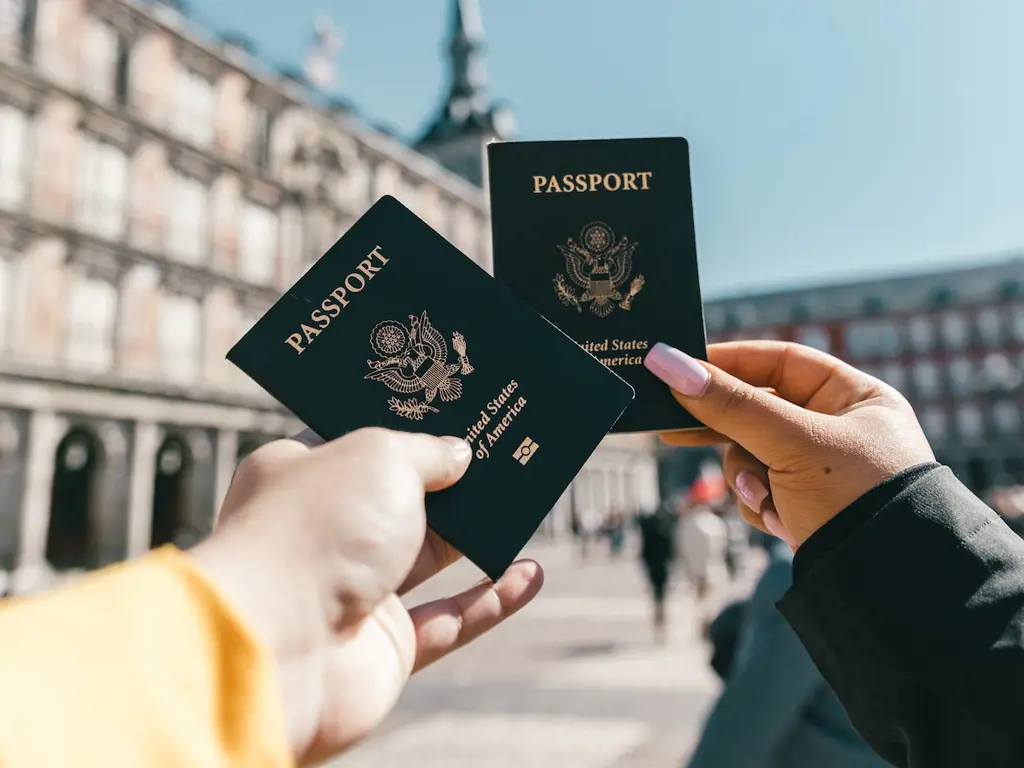
The Visa Waiver Program (VWP) allows citizens of certain countries to visit the United States for tourism or business purposes for up to 90 days without obtaining a visa. However, it is important to abide by the time frame given, as overstaying can have serious consequences.
- Legal consequences: When you overstay your allowed time under the VWP, you are violating the terms of your admission into the United States. This can result in being deemed "out of status" and subject to removal proceedings. If you overstay for more than 180 days, you may be barred from re-entering the United States for 3 years or even 10 years, depending on the duration of the overstay.
- Impact on future travel: Overstaying your allowed time can negatively impact your ability to enter the United States in the future. Even if you are not subject to a formal re-entry ban, customs and border protection officers have the discretion to deny entry based on previous overstay.
- Reapplication for a visa: If you overstay your allowed time under the VWP and subsequently wish to visit the United States, you will be ineligible to use the program again. You will need to apply for a visa at a U.S. embassy or consulate in your home country, which can be a lengthy and complex process.
- Immigration violations on record: Overstaying your allowed time can result in an immigration violation being recorded on your record. This can have long-term consequences when applying for immigration benefits, such as a green card or citizenship. Immigration violations can also impact your ability to obtain visas for other countries in the future.
- Deportation and detention: If you overstay your allowed time and are caught, you may face detention and deportation. This can be a traumatic and costly experience, as you may be detained for an extended period while waiting for the deportation process to conclude. Additionally, you may be responsible for covering the costs of your detention and deportation.
It is crucial to be aware of the terms and conditions of the Visa Waiver Program and to ensure that you leave the United States within the allowed time frame. If unforeseen circumstances arise that prevent you from leaving on time, it is advised to contact the U.S. Citizenship and Immigration Services to discuss your options and avoid any legal and immigration complications. It is always better to comply with the regulations to ensure a hassle-free and positive travel experience.
Understanding Visa Free Travel: Everything You Need to Know
You may want to see also
Frequently asked questions
To be eligible to travel under the Visa Waiver Program, you must meet certain criteria. First, you must be a citizen of one of the 39 countries that participate in the program. You must also have a valid ESTA (Electronic System for Travel Authorization) approval, which can be obtained online. Additionally, you must be traveling for business, tourism, or transit purposes and your stay in the United States must not exceed 90 days.
If you have been denied a visa to the United States in the past, you may not be eligible to travel under the Visa Waiver Program. The program is designed for individuals who pose little to no risk to U.S. national security or immigration enforcement. If you have been denied a visa, it may indicate that you do not meet the eligibility requirements for the program. In such cases, it is advised to consult with a U.S. embassy or consulate to determine your options for travel.
No, the Visa Waiver Program does not allow for extensions of stay. If you enter the United States under the program, you must depart before the end of the authorized 90-day period. If you wish to stay longer, you will need to apply for a different visa or seek an extension through other means, such as obtaining a change of status. It is important to adhere to the rules and restrictions of the program to avoid any potential immigration issues.


